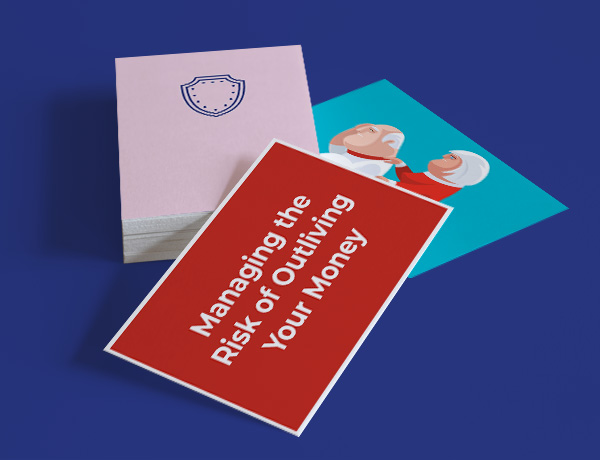8 behaviors to help increase financial confidence
The lives of working Americans have changed immeasurably over the past two years. In a recent report, The Study of Financial and Emotional Confidence™, Working adults were asked what impacts their emotional and financial well-being. Among other results, it was learned that income is not the sole driver of confidence and success. In fact, it is proactive financial habits and high levels of understanding of financial concepts and products that contribute to higher financial and emotional confidence.
Despite workers having a good grasp on what their financial goals should be, a gap exists between their financial priorities and the behaviors they exhibit to support them. That gap can cause stress and a lack of confidence. While there’s always room to improve, the most financially and emotionally confident working adults demonstrate specific, model financial behaviors. Having a written plan, ideally developed with a trusted financial professional, can help to bring clarity and purpose to decision-making. Long-term planning, knowledge of financial concepts, and knowing where to turn for financial guidance are all correlated with happier and more financially confident individuals.
- Knowledge is power. According to the report, those with a basic understanding of financial concepts are more confident, happier individuals and are more likely to achieve their financial goals. Pursuing a financial education does not mean going back to school for a degree; it’s as simple as exploring quality online resources, attending personal finance webinars, using online budgeting tools, or working with a financial professional.
- Live within your means.Don’t overspend, and keep up with monthly expenses. This is a healthy attitude toward money and sets a strong financial foundation.
- Build a written comprehensive plan.Financial strategy plays a major role in how confident and prepared individuals feel for their future — and the more comprehensive it is, the better. Take time to lay out specific goals, as well as to consider the role of life insurance and account for the cost of health care in retirement. Update your plan as your priorities and situations evolve.
- Embrace long-term thinking.Financially confident individuals understand that building wealth is a marathon, not a sprint. Thinking long-term not only helps train your habits toward delayed gratification, but it can also help mitigate stress when the stock market tumbles and surges.
- Explore digital tools.Investigating digital tools like personalized budgeting software or an online banking app may help you develop a financial strategy. Especially if you’re just starting out, you will begin to grasp the best practices you need for financial confidence.
- Balance protection and investment products.Consider a mixture of protection and growth financial solutions to help meet your needs and provide you with greater confidence.
- Offload your financial stress to a financial professional.Use a strategic relationship, like a financial professional, to bear the burden of understanding (and then explaining) new products, changes in laws, and mapping out a set of achievable goals.
- Build savings.Many individuals get more satisfaction from saving and investing their extra money than from spending it. Feeling secure with your nest egg is well worth some short-term sacrifices.
Money can’t buy happiness, but acknowledgement of your financial situation and steps toward educating yourself can set a strong foundation. Long-term planning, knowledge of financial concepts, and knowing where to turn for financial guidance are all correlated with happier and more financially confident individuals.
As you consider incorporating these eight behaviors into your daily practice, don't forget to go straight to the source. Check with your employer to find out what financial benefits are available to you right now. They may be more easily accessible than you think!
Read more about the financial trends of working Americans and learn about the four different types of financial profiles in Guardian’s Study of Financial and Emotional Confidence™.
Disclosures:
Unless otherwise indicated, all information included in this article is sourced from The Guardian Study of Financial and Emotional Confidence, 2022.
Material discussed is meant for general informational purposes only and is not to be construed as tax, legal, or investment advice. Although the information has been gathered from sources believed to be reliable, please note that individual situations can vary. Therefore, the information should be relied upon only when coordinated with individual professional advice. Guardian, its subsidiaries, agents, and employees do not provide tax, legal, or accounting advice. Consult your tax, legal, or accounting professional regarding your individual situation. Links to external sites are provided for your convenience in locating related information and services. Guardian, its subsidiaries, agents and employees expressly disclaim any responsibility for and do not maintain, control, recommend, or endorse third-party sites, organizations, products, or services and make no representation as to the completeness, suitability, or quality thereof.
2022-139032 (Exp. 6/24) *pre-approved content*



